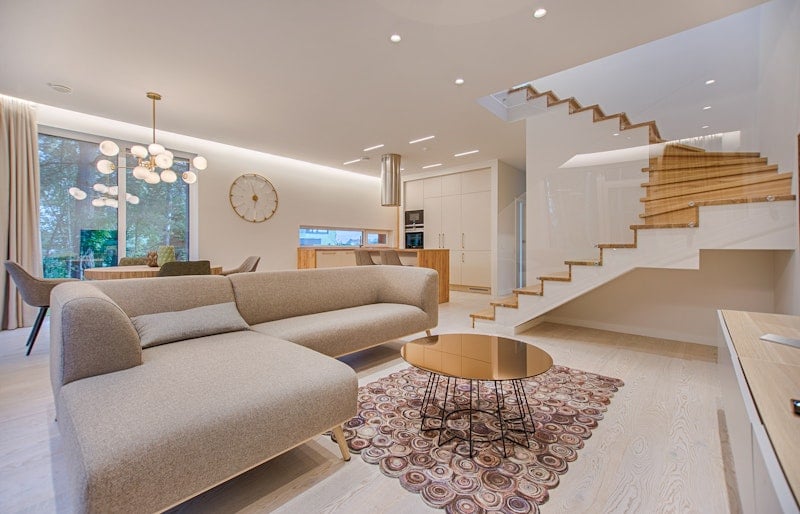Corporate housing rentals have emerged as a preferred choice for businesses and professionals needing flexible, comfortable accommodations during relocations, projects, or extended business trips. These fully furnished apartments or homes offer the comforts of home combined with hotel-like services, making them ideal for short-term or monthly home rentals.
In today’s dynamic work environment, where remote work and business travel continue to evolve, corporate housing rentals provide secure, premium solutions that support productivity and work-life balance. Industry reports from leading short-term rental data providers like AirDNA indicate strong growth in demand for furnished temporary housing options.

Whether you’re searching for executive home rentals or luxury short-term stays, platforms such as Furnished Finder specialize in connecting travelers with quality options. Let’s explore why this matters for modern professionals.
- What is Corporate Housing?
- Benefits of Corporate Housing Rentals
- Top Platforms Comparison
- How to Choose the Best Corporate Housing
- Tips for Booking Corporate Housing Rentals
- FAQ
What is Corporate Housing?
Corporate housing rentals refer to fully furnished residential properties leased on a temporary basis, typically for 30 days or more, to business travelers, relocating employees, or project teams. Unlike traditional hotels, these executive home rentals include kitchens, separate living areas, and often amenities like Wi-Fi, utilities, and housekeeping.
According to industry analysis from AirDNA, the short-term rental market, which encompasses many corporate housing options, shows strong growth in demand for furnished accommodations that support longer stays.
Commonly used for interim housing during relocations or assignments, corporate housing bridges the gap between hotel stays and long-term leases. Explore more on monthly home rentals for similar flexible options.

Research from short-term rental analytics firms demonstrates increasing adoption of these solutions for business needs, offering better ROI compared to extended hotel bookings.
Benefits of Corporate Housing Rentals
One major advantage of corporate housing rentals is cost savings. For stays longer than a few weeks, these options often provide better pricing and plans compared to hotels, with all-inclusive rates covering furniture, utilities, and internet.
Professionals enjoy more space and privacy, including dedicated workspaces—crucial for remote work performance and analytics. Industry trends highlight strong momentum in furnished temporary housing for its secure and comfortable environment.
Additional perks include access to amenities like gyms, pools, and laundry, enhancing overall stay quality. For those interested in upscale options, check our guide to luxury home rental.
According to reports from data providers like AirDNA, demand for short-term and corporate-style rentals continues to expand, driven by business travel recovery and flexible work arrangements.
Key Advantages at a Glance
- Cost-effective for extended stays with transparent pricing
- Fully furnished with enterprise-level amenities
- Improved work-life balance and productivity
- Flexible lease terms without long commitments
| Name | Key Features | Pros | Cons | Best For |
|---|---|---|---|---|
| Zumper | Extensive listings, filters for furnished, short-term options | Easy search tools, wide coverage | May include unfurnished mixes | General apartment hunters seeking deals |
| Furnished Finder | Specialized in monthly furnished rentals, no booking fees | Direct owner contact, corporate-focused | Limited luxury options | Medium-term corporate stays |
| RentCafe | Professional management, detailed property info | Reliable listings, amenities details | Higher service fees possible | Enterprise relocations |
| CorporateHousing.com | Dedicated short-term furnished platform | Targeted for business travelers | Inventory varies by city | Executive and project teams |
| Blueground (via similar platforms) | Premium furnished apartments, flexible terms | High-quality, modern designs | Premium pricing | Luxury corporate housing |
Secondary CTA: Compare more options on sites like Zumper or RentCafe for the best deals.
How to Choose the Best Corporate Housing
When selecting corporate housing rentals, consider location, amenities, and lease flexibility. Prioritize properties near business districts for convenience and secure access.
Look for providers offering comprehensive plans and pricing comparison tools. Data from industry research shows strong growth in platforms specializing in furnished executive rentals.

Read reviews and check for verified listings on trusted sites like ForRent.com. For beach or vacation blends, see beachfront home rentals.
Factors to Evaluate
- Proximity to work and transportation
- Included utilities and high-speed internet
- Furnishings quality and housekeeping services
- Pet-friendly or family options if needed
Tips for Booking Corporate Housing Rentals
Book early for the best selection and rates, especially in high-demand cities. Use filters for furnished and short-term on platforms like HotPads.
Negotiate for enterprise rates if booking multiple units. Industry insights indicate increasing adoption of digital tools for seamless booking and management.
Always review lease terms for flexibility. Related: Discover options in short-term home rentals.
Ready to Find Your Ideal Corporate Housing Rental?
Secure comfortable, fully furnished accommodations that boost productivity and offer excellent ROI for your business travel needs. Explore Executive Home Rentals atau Check Premium Home Rental Options untuk the best solutions today.
FAQ
What is the difference between corporate housing and short-term rentals?
Corporate housing is specifically tailored for business needs with furnished setups and services, while short-term rentals like vacation homes focus more on leisure.
How long can I rent corporate housing?
Typically from 30 days to several months, offering flexibility for project-based or relocation stays.
Are utilities included in corporate housing rentals?
Yes, most plans include utilities, Wi-Fi, and basic furnishings for hassle-free living.
 Northwest Exteriors
Northwest Exteriors